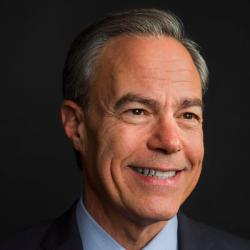

2:00 pm EST - 4:30 pm EST
Past Event
The United States faces extraordinary problems of polarization, radicalization, and extremism that make it difficult to address pressing policy issues. There have been precipitous increases in the public’s distrust of government, institutional dysfunction, and racial and ethnic violence. Taken together, these developments pose systemic risks and threaten the very fabric of our society, economy, and political processes.
On February 9, Brookings hosted a webinar to discuss the United States’ polarization and the importance of overcoming those divisions, particularly after a divisive election campaign and its troubled aftermath. Panelists explored the sources of American divisions and policy solutions with the potential to take the country on a path toward healing and shared prosperity. Speakers identified specific steps that would address the structural factors fueling polarization and extremism and opportunities for state and community leaders to contribute to these overall efforts.
Viewers submitted questions for speakers by emailing [email protected] or by tweeting at @BrookingsInst.
Panelist

Moderator

Panelist

Panelist

Philip H. Gordon
May 16, 2025

George Ingram, Junjie Ren
March 7, 2025

Darrell M. West
September 16, 2024